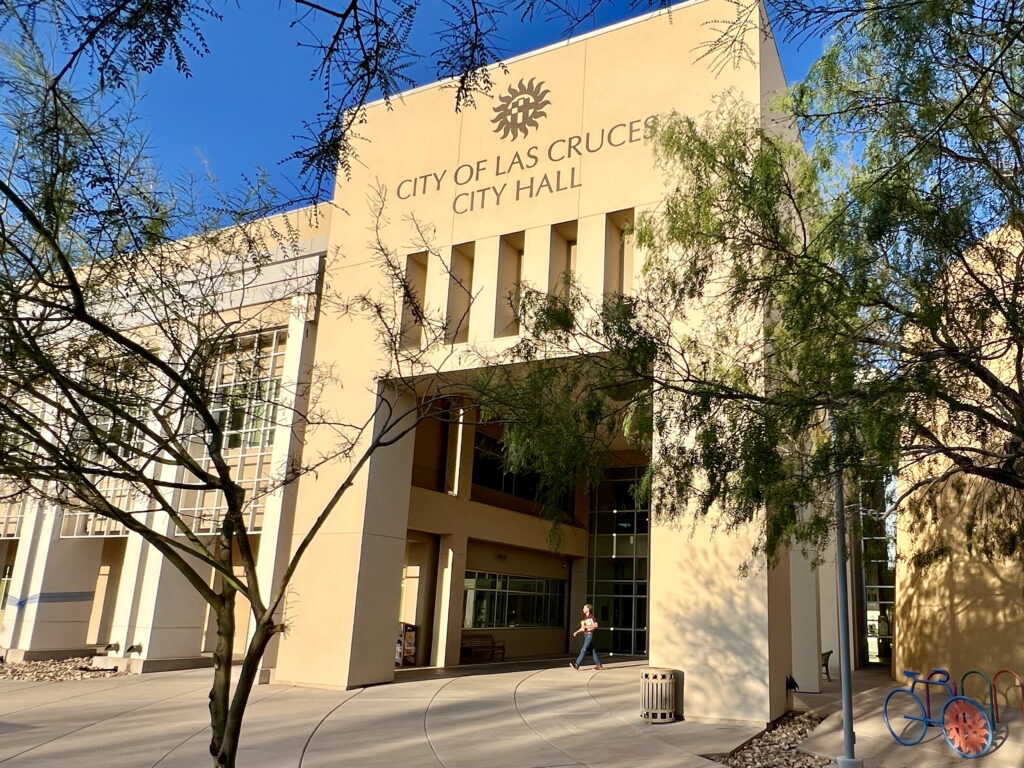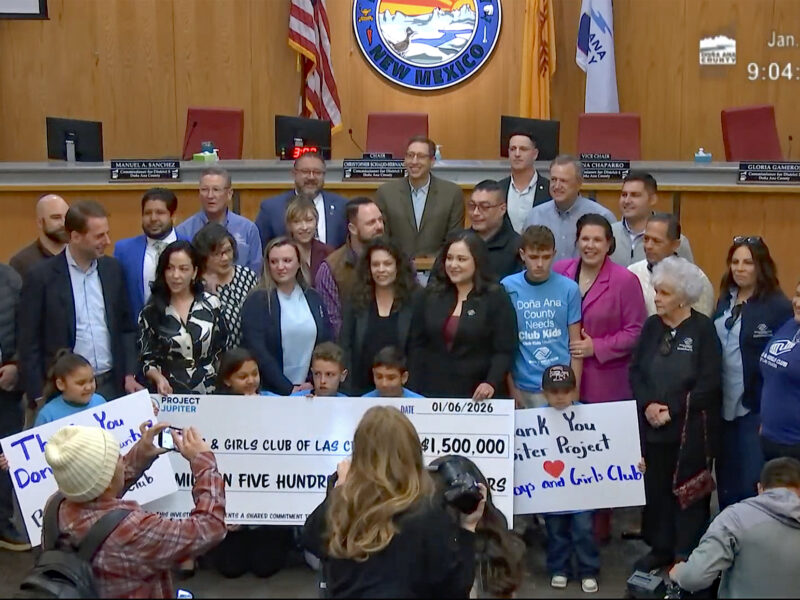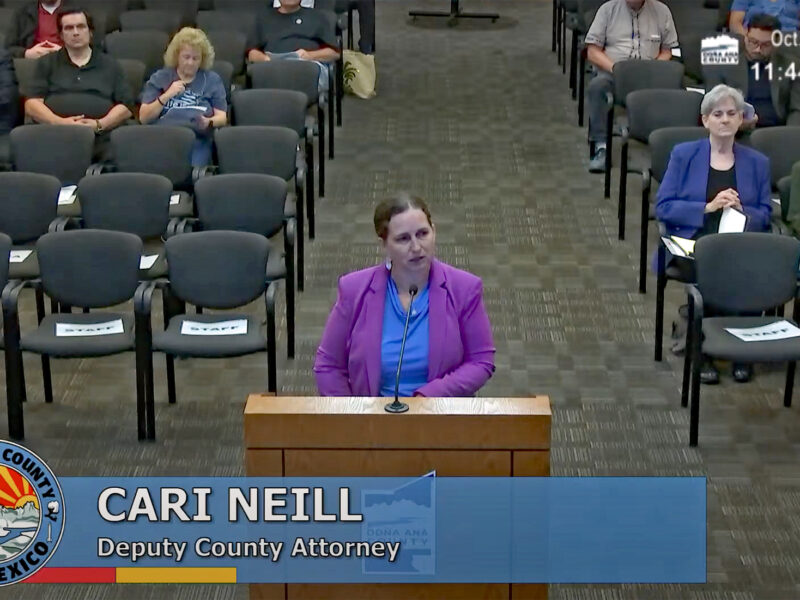
Your ability to access government documents that you own, which is a sacred right in New Mexico, is under attack.
The organizations that represent cities and counties in New Mexico are recommending sweeping changes in the upcoming state legislative session that would make it more difficult for you to view public records, the Las Cruces Bulletin is reporting.
The City of Las Cruces is among the government agencies pushing to clamp down on access.
The city clerk, Christine Rivera, detailed changes she wants at a recent City Council work session. The Municipal League and Association of Counties are proposing others. One of the worst is the implementation of a new fee to help offset the hours staff put into preparing records for people who request them.
The Inspection of Public Records Act (IPRA) doesn’t currently allow that, and for good reason. You own these records. Your tax dollars have already paid for them. You’re entitled to see them upon request, no questions asked.
State law only allows you to be charged for the materials that go into making copies for you, should you want copies. Government agencies can charge up to $1 per page for printed copies, or the cost of the jump drive or disc if you’re given electronic records.
‘A fundamental tool’
“Inspecting public records is an important civic action that can enrich policy discussions, encourage free speech, empower local communities, and increase education and understanding of our government,” Attorney General Raúl Torrez wrote in a letter introducing his office’s guide to IPRA.
“By helping to shine light on the affairs of state and local government, IPRA is a fundamental tool for promoting good government in New Mexico,” Torrez wrote.
I can verify that. More than two decades ago, when I was a reporter at the Las Cruces Sun-News, a tip led me to file a records request for a document that revealed a payment the school board had approved to the superintendent without telling the public, which is illegal. So I requested other documents; those revealed additional secret payments.
That’s how Las Crucens learned that the school board had illegally funneled hundreds of thousands of dollars in compensation to the superintendent in secret at a time when the district said it didn’t have enough money to buy science textbooks for middle schoolers.
The community responded by recalling the two people involved in those illegal acts who were still on the school board. The state attorney general charged the five board members involved with violating the state’s Open Meetings Act. To this day, they’re the only people convicted of violating that law in the state’s history.
It all started with a request to look at public records. I’ve been regularly requesting to inspect public records from local and state agencies ever since, and they’ve been critical to countless articles I’ve written.
Not just for journalists
Public records aren’t just for journalists. All people, including you, “are entitled to the greatest possible information regarding the affairs of government and the official acts of public officers and employees,” IPRA states. That’s because our democracy “is dependent upon an informed electorate.”
You’re entitled to see, for example, the contract the New Mexico State University Board of Regents entered into with the new president so you can learn how much he’s being paid and what other compensation he’s receiving. You’re entitled to read all emails sent to and from the Las Cruces city manager (or the city clerk) that relate to public business so you can see who they’ve been talking with. You’re entitled to see video footage from cameras in the Doña Ana County Detention Center, which is critical when an inmate is injured or killed.
You own these records. All you have to do is ask. As IPRA states, providing you with the records you request is “an integral part of the routine duties of public officers and employees.”
The Las Cruces city clerk wants to change that. The fee she proposes would fundamentally alter the law so you’re only entitled to see such records if you can afford to pay for them. Such a policy change would disproportionately impact low-income citizens.
The Las Cruces City Council voted earlier this month to be generally supportive of the changes Rivera is proposing, though councilors may get more nuanced when there’s actual legislation introduced next month. I sure hope they do.
Valid concern, misguided solution
Rivera’s proposal is driven by a valid concern. There’s been a dramatic increase in records requests in recent years. Employees in the clerk’s office spend much of their time “reviewing, redacting and researching IPRA requests,” she told the Council at its November work session.
That’s largely because the state enacted a law requiring police officers to wear body cameras, and lots of people understandably want to get their hands on those videos. New Mexico consistently has one of the highest rates of police officers shooting civilians.
The Legislature mandated body cameras without providing the funding for local governments to deal with the increase in requests for footage from those cameras.
But Rivera’s proposed solution is misguided. Rather than fundamentally altering a policy that so heavily favors citizen access to government, the city or the state needs to fund additional employees to handle the increase in requests.
In Las Cruces, that probably means the police department needs its own records custodian so the burden of handling requests for police videos doesn’t fall to the city clerk.
The state has a ton of surplus money to spend in the upcoming session. Las Cruces can find the money too; it just raised taxes to fund public safety and infrastructure. It won’t cost much to hire an additional staffer or two to ensure the public’s access to public records we have already paid for.
In these dangerous times, when democracy is facing a credible threat from the incoming federal administration, our local and state governments must do all they can to strengthen institutions that promote democracy. It’s concerning that so many local governments are instead pushing in the same direction as the Trump team with proposals to limit access to public records. The Legislature and governor must guard IPRA zealously.
Disclosure: My girlfriend Sarah Silva is the incoming state representative for House District 53 and could be among those considering the proposed changes to IPRA.


